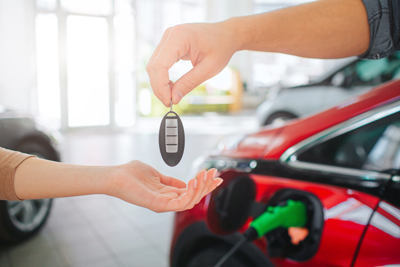Maryland has given 12,836 electric vehicle rebate credits between fiscal year 2011 and 2022 for $28.7 million.
The program allows up to a $3,000 excise tax credit for battery electric vehicles and plug-in hybrid electric vehicles. The battery electrics are fully electric and have rechargeable batteries; plug-in hybrids use a battery and gasoline-powered internal combustion engine.
The Maryland Zero Emission EV Infrastructure Council targets 600,000 registrations statewide by 2030 to reduce annual greenhouse gas emissions by 1.61 million metric tons.
Maryland has 81,088 electric vehicles registered and must average registering 6,178 monthly for seven years to gain the 518,912 needed to reach the benchmark.
Carter Elliot, press secretary for Gov. Wes Moore, told The Center Square that Maryland is investing more than $100 million in public charging infrastructure over the next five years. The state will provide nearly $25 million in incentives over the next three years for the purchase of light-duty zero-emission vehicles.
“Since day one, Gov. Moore has shown a strong commitment to protecting Maryland’s environment for generations to come, which is why he has strongly supported new regulations that encourage the manufacturing and usage of electric vehicles,” Elliot told The Center Square in an email.
Elliot said the U.S. EV market is projected to grow to $137 billion over the next five years and said the governor strongly believes Maryland needs to be a part of that growth.
“This effort will not only ensure that our air will be cleaner and our planet will be safer, but it will create a major economic driver as well,” Elliot said.
The Maryland Greenhouse Gas Emissions Reduction Act sets a 40% reduction goal of greenhouse gas emissions by 2030. Transportation represents 36% of greenhouse gas emissions, the state’s single largest greenhouse gas emissions generator, according to the Maryland Department of Transportation.
Transportation Deputy Director of Media Relations Ashley Millner told The Center Square in an email that between the fiscal year 2022 and the present, Tesla vehicles composed 42.25% of electric vehicle rebates. Chevrolet accounted for 21.94% and Toyota 9.89%.
Most people tapping the rebate were between 20 and 59 years old. As of July 1, 128 rebates have been issued totaling $382,000.
The EV Supply Equipment Rebate Program, which provides a 50% rebate of up to $700 per residential charger, has delayed the processing of new applications. The program received $2.5 million in fiscal year 2024.
The most popular models with more than 1,000 vehicles registered as of June 2022 statewide are:
- Tesla Model 3: 15,020
- Tesla Model Y: 12,434
- Toyota Prius Prime: 4,065
- Tesla Model S: 3,902
- Chevy Bolt: 2,978













